Kathleen Folbigg details 20 years of horror in compensation bid
She might not be locked in a cell any more, but Kathleen Folbigg still carries the shackles of 20 years of incarceration. In this exclusive interview she talks about how she is still constantly wary, prefers bland food — and hesitates before opening doors.
NSW
Don't miss out on the headlines from NSW. Followed categories will be added to My News.
She might not be locked in a cell any more but Kathleen Folbigg still carries the shackles of 20 years of incarceration.
It’s the little things.
“I’m always watching who’s coming through the door, who’s behind me. I won’t say fear, it’s not a fear, just a bit of trepidation,” she said during an exclusive interview in Newcastle, the place she calls home.
“And I wait for someone else to open doors. When you’re inside, you don’t open doors or you cop it from the guards.
“I hadn’t opened a door for 20 years, so yeah, I even find myself hesitating at my own doors at home.”
Then there is the anxiety that comes with meeting new people.
Do they think she’s guilty? Did they believe the headlines that labelled her the worst serial killer in Australian history?
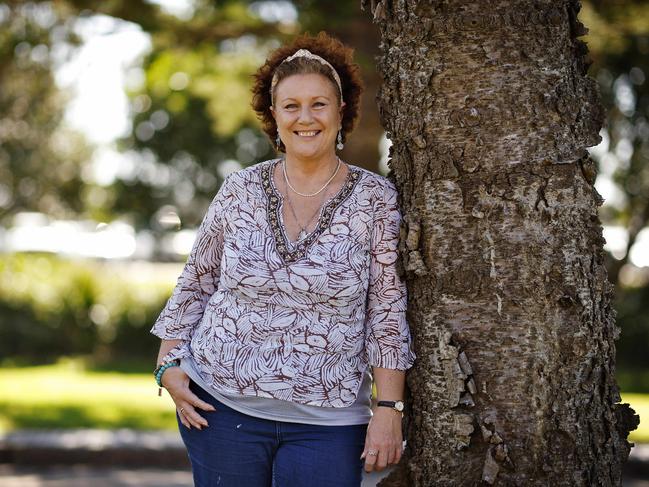
“If I’m meeting someone new I think ‘OK, well you know who I am, but I don’t know who you are’, so I’ve got no concept or idea as to what they might believe about me.
“It’s a risk every time,” she said.
When you meet Ms Folbigg for the first time she looks you straight in the eye and puts her hand out offering up a firm shake.
“I decide for myself, no matter what I have heard about someone I go with my gut instinct.
“I shake your hand and if I don’t get a good feeling I bolt from any situation,” she said, revealing her friends have had to make excuses for her quick exit from a gathering.
“A gut instinct is something that you rely on, you never ignore it. When you’re inside, you run on that or you don’t survive.”
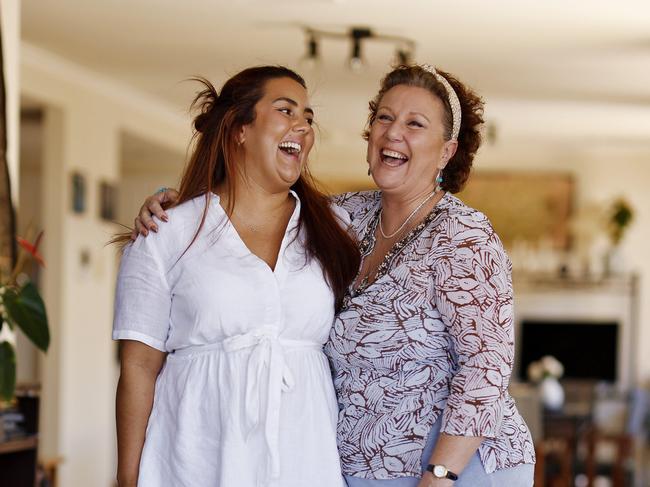
Ms Folbigg was 35 years old when she was locked up in 2003, wrongly convicted of killing her four babies.
The children — Caleb, Patrick, Sarah and Laura — died between 1989 and 1999 at ages ranging from 19 days to 18 months.
She was released from prison in June last year after receiving a pardon following an independent inquiry which heard new scientific evidence that indicated her children may have died from natural causes or a genetic mutation.
She rubbed shoulders with Katherine Knight, the woman serving a life sentence for stabbing to death her partner, John Price, skinning him, hanging him on a meat hook then cooking his head and parts of his body.
In 20 years she built up a plethora of harrowing stories — she’s sent a rundown to Premier Chris Minns hoping he will award her appropriate compensation for the scars she carries from having to live her life sleeping with one eye open, watching her back every day (see story below).
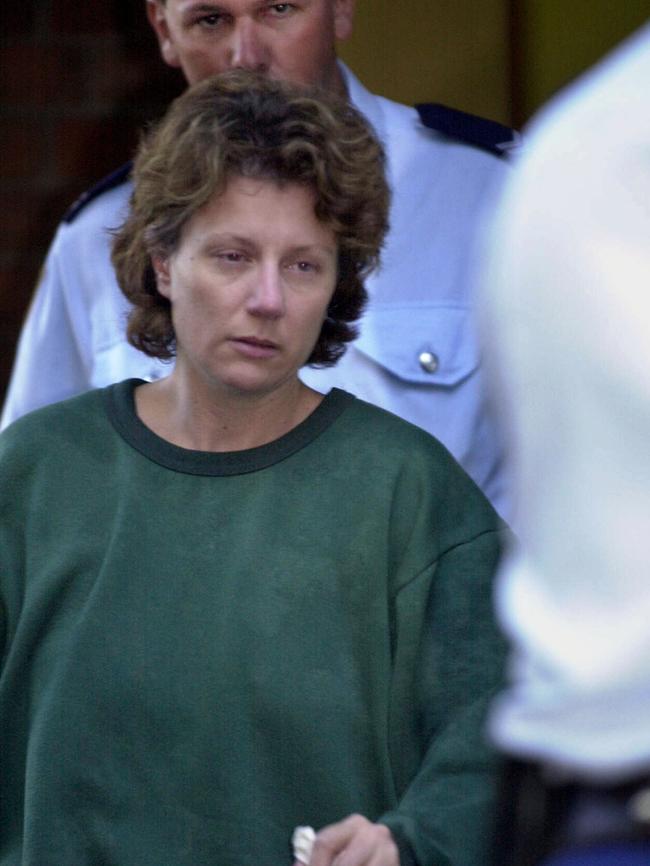
“In jail you don’t have real friends, you call them friendly acquaintances,” she said, revealing she keep in touch with a couple on the outside.
“I have one who’s actually still inside, she rings up probably once a week and we’ll have a chat. I like to sort of make sure she’s doing OK.
“But once you’re out you don’t really keep in touch with people on the inside, that’s a part of life you want to move on from.”
Always determined to “look on the bright side” of her ordeal and grief over losing four babies, Ms Folbigg said was glad she got to attend all four funerals and say goodbye before she was jailed.
While on the inside, though, she chose not to talk about her children.
“You have to mute your emotions because you can’t be drawing attention to yourself, you know, or you get that ‘How dare you think about them. You have no right to be thinking about them’.
“Showing emotion would spark a bad interaction and you want to avoid that so you keep things to yourself.
“You wear earbuds, listen to music most of the time, keep out of conversations that can turn bad.”
She couldn’t always avoid it though, conceding she’d copped her share of violence, most of the time though away from cameras and no one ever snitched.
A “big shiner” gave her away one time, though, when she protected a “slim girl with glasses”.
“I could feel it heating up around me so I told her to get to her cell, get out of here — so then they got me instead.”
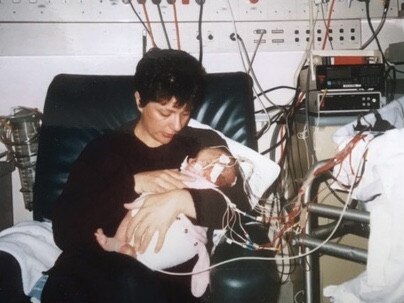
Now on the outside, Ms Folbigg still keeps thoughts of her children close to her chest.
“Now that I’m out it’s more of a case of I’ve got to have something that’s mine and that the memories of them are mine, so yeah, I am a bit possessive of that and keep the memories close.”
Showing she’s developed a dry sense of humour over the years, Ms Folbigg said one thing she will never do again is write down her thoughts in a journal.
“People will actually ask me ‘are you going to write a journal again?’ and I think ‘why? So every word can be used against me? No thank you.”
Ms Folbigg wrote in a journal about her mindset after the deaths of her children, and the writings were used as evidence against her in multiple court proceedings.
Her mindset at those dark moments are for all to read on the internet.
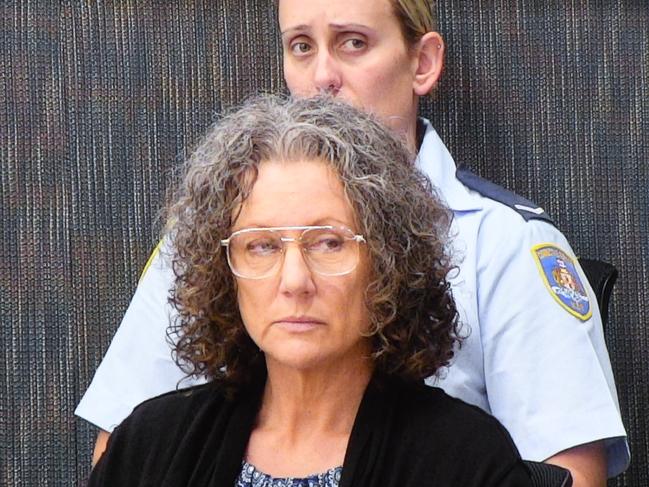
“It’s funny, in jail people thought they could make the most of doing time with me,” she said.
“There was a little pocket on our cell door where your picture and information goes and girls would just keep nicking my card because they thought they could take that out with them, and they were going to sell it and say, ‘I know her’.
“The staff were getting really annoyed at having to keep making new cards. So in the end, they wouldn’t put my picture up anymore. I drew two eyes and a smiley face on a bit of paper and we used that.”
Folbigg isn’t bitter about the hand she was dealt, more focused on making the most of the rest of her life.
Really living.
That can be hard, though, when she locks herself down before dark.
“I have a bad habit of saying no when people might say at 5.30pm ‘come out for a drink’ and I’m already in my PJs with the door shut. I still live by an eight to four situation,” she said.
“I am so used to being locked in a cell from 3.30pm in the afternoon. I’m only just now, 18 months later, trying to stretch that a bit.”
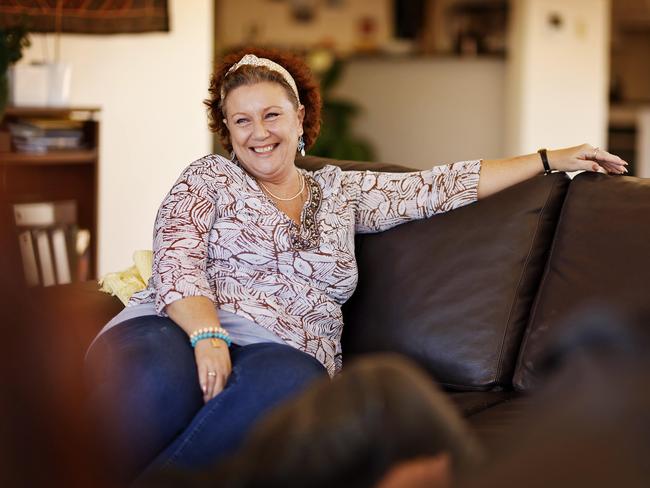
She has a close knit group of friends — including her Newcastle-based lawyer Rhanee Rego and lifelong friend and freedom campaigner Tracy Chapman — but has trouble making new ones.
“In my mind I am 35, the age I was when I went in and I’m definitely stuck in the 90s,” she laughs as she shows off her newly detailed car, love of leopard print and reveals her favourite drink is Kahlua and Coke.
She’s not too fond of cars that don’t use keys, and doesn’t appreciate fancy restaurants or foods from different cultures, thanks to the bland food she has grown accustomed to.
“I thought when I got out I would want to enjoy some good food again but unfortunately, after a couple of decades of bland, dull food, I find it very hard. Eating anything that isn’t bland can actually make me a little bit ill, too, if I have anything that’s too spicy or different.”
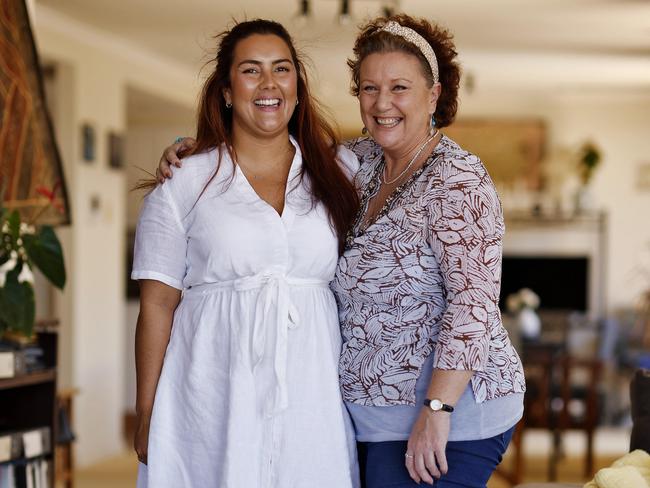
She does love the freedom of driving her car.
“That feels fantastic. That, to me, is the ultimate freedom, as far as I’m concerned, just driving in a car. But yeah, it had to be one with the key.”
While life is heading in the right direction, Ms Folbigg wants to work again, find love again, find her purpose.
“A lot of people say, ‘what are you going to do?’. And I’m sort of like, ‘I’ve got no idea’. I am stuck on a treadmill that I can’t get off until this final chapter is sorted,
“I want the people who have helped me through this to be able to get on with their lives and stop worrying about me.
“I like the idea of being the face of a change of some sort that’s desperately needed, especially in the legal system.
“To have someone sitting in prison like me for 20 years is not right. It should never, ever have happened and certainly should never happen again.”
Do you have a story for The Daily Telegraph? Message 0481 056 618 or email tips@dailytelegraph.com.au





